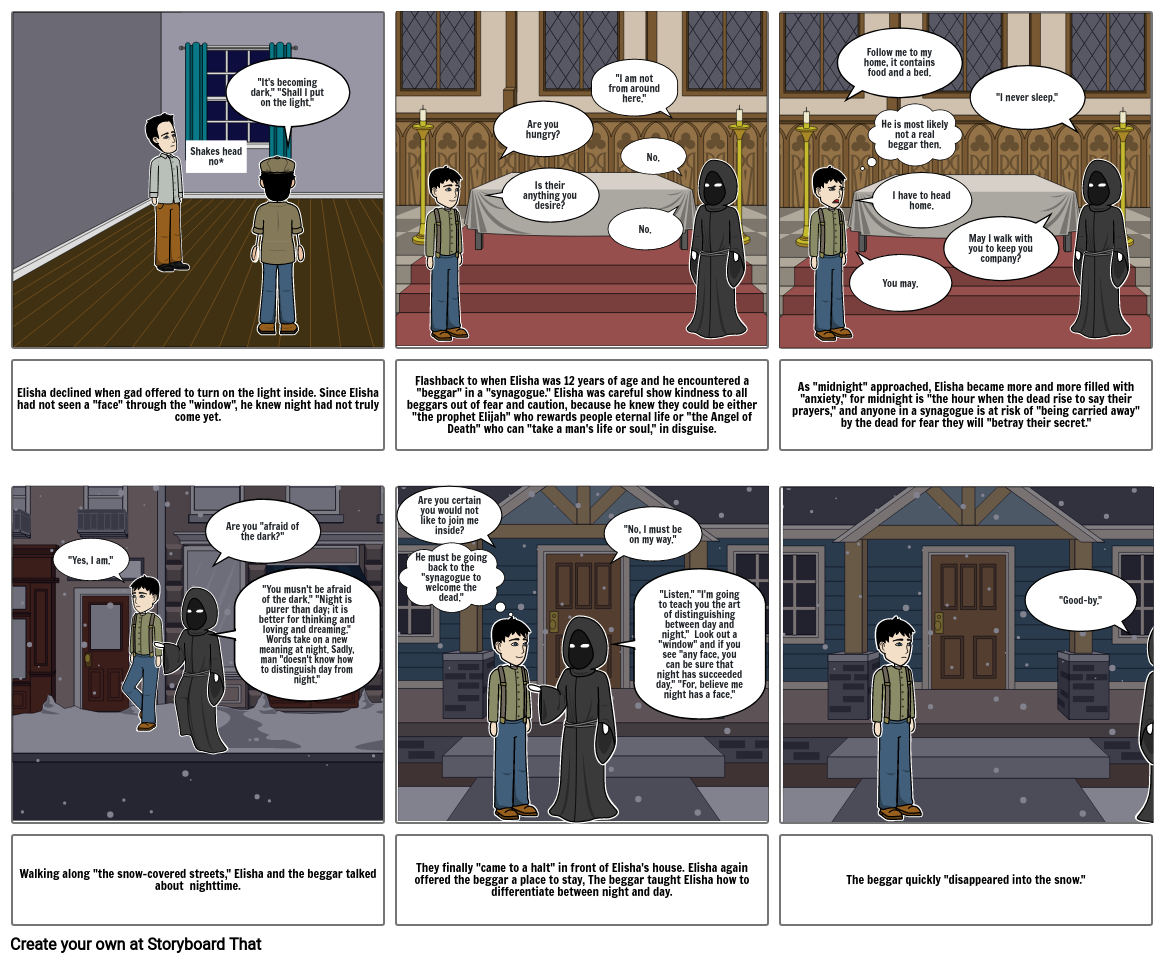The Beggar Flashback

Storyboard Text
- Shakes head no*
- "It's becoming dark." "Shall I put on the light."
- Is their anything you desire?
- Are you hungry?
- "I am not from around here."
- No.
- No.
- Follow me to my home, it contains food and a bed.
- You may.
- I have to head home.
- He is most likely not a real beggar then.
- May I walk with you to keep you company?
- "I never sleep."
- Elisha declined when gad offered to turn on the light inside. Since Elisha had not seen a "face" through the "window", he knew night had not truly come yet.
- "Yes, I am."
- Are you "afraid of the dark?"
- "You musn't be afraid of the dark." "Night is purer than day; it is better for thinking and loving and dreaming." Words take on a new meaning at night. Sadly, man "doesn't know how to distinguish day from night."
- Flashback to when Elisha was 12 years of age and he encountered a "beggar" in a "synagogue." Elisha was careful show kindness to all beggars out of fear and caution, because he knew they could be either "the prophet Elijah" who rewards people eternal life or "the Angel of Death" who can "take a man's life or soul," in disguise.
- He must be going back to the "synagogue to welcome the dead."
- Are you certain you would not like to join me inside?
- "No, I must be on my way."
- "Listen." "I'm going to teach you the art of distinguishing between day and night." Look out a "window" and if you see "any face, you can be sure that night has succeeded day." "For, believe me night has a face."
- As "midnight" approached, Elisha became more and more filled with "anxiety," for midnight is "the hour when the dead rise to say their prayers," and anyone in a synagogue is at risk of "being carried away" by the dead for fear they will "betray their secret."
- "Good-by."
- Walking along "the snow-covered streets," Elisha and the beggar talked about nighttime.
- They finally "came to a halt" in front of Elisha's house. Elisha again offered the beggar a place to stay, The beggar taught Elisha how to differentiate between night and day.
- The beggar quickly "disappeared into the snow."
Over 30 Million Storyboards Created

